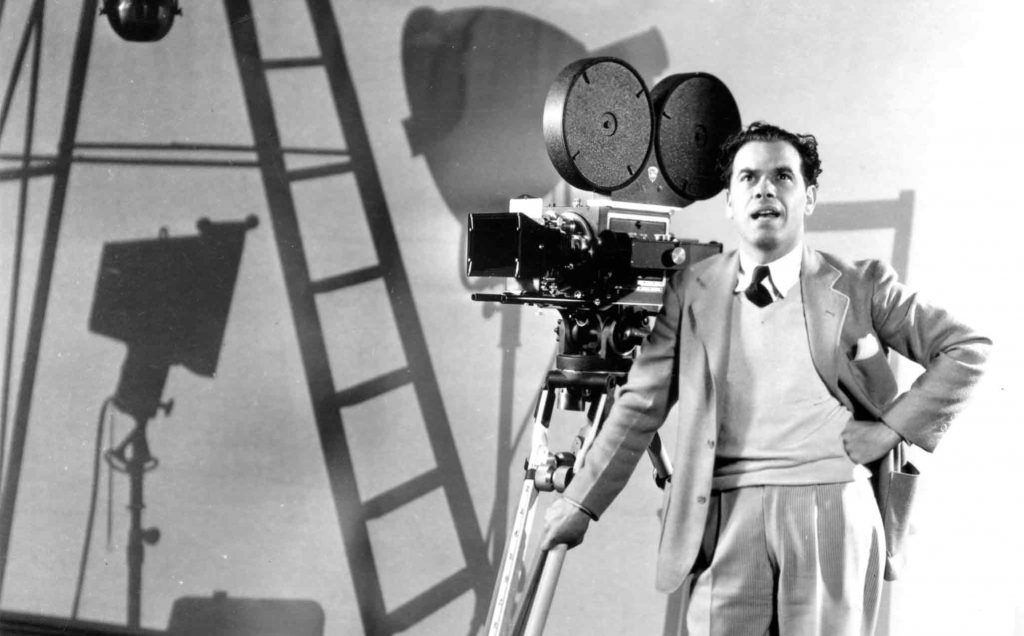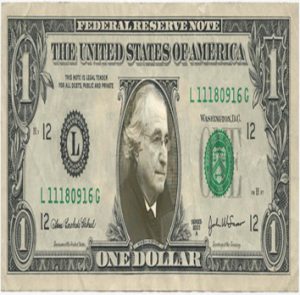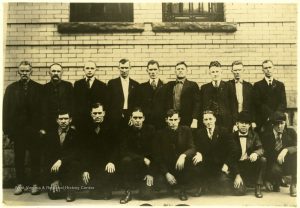Films like, “Mr. Deeds Goes to Town,” “Mr. Smith Goes to Washington,” and “It’s a Wonderful Life” have been enjoyed by American audiences for decades and have pulled at the heartstrings of their audiences. What do all of these famous films have in common? They were all directed by Frank Capra. Capra was one of the most famous and successful movie makers in Hollywood in the 1930s and 1940s.1 The question that must be asked is simply this: What was it about Frank Capra’s films that made them so popular among the American people during a time of extreme economic crisis? Capra was known for making films about the common man in a small town, surrounded by a world of corruption. It was in Capra’s films that Americans living through the turmoil of the Great Depression could find an escape from the harsh reality they faced everyday.2

Frank Capra was born in Sicily in 1897 and was relocated to the United States with his family in 1903. He attended the California Institute of Technology, where he studied Chemical Engineering and graduated in 1918.3 Following his graduation, Capra enlisted in the United States Army and taught math to artillerymen at Fort Point, San Francisco. Shortly after Capra left the army he began working for Mack Sennett Studios. It was here that he learned the ins and outs of writing as well as directing. The knowledge he obtained here led to him taking a position with Columbia Pictures in 1928.4 Columbia Pictures became Capra’s home. It was here that he would produce the films that would sell his great vision of the right society that appealed to so many Americans.
In October 1929, the stock market in the United States crashed and the Great Depression followed.5 America experienced the longest and hardest economic contraction in its history. Due to this crash, a massive downturn in consumer spending ensued and, as a result, businesses began letting go of employees in massive numbers. The individuals who were fortunate to stay employed saw dramatic decreases in their pay.6 Families were struggling, literally living paycheck to paycheck. The economy America had known was no longer flourishing and the American Dream seemed to many to be a mirage. It may have seemed risky and perhaps even slightly crazy to attempt to produce movies during this time, but that did not stop Frank Capra. Not only did he begin directing movies during the Great Depression, but he produced some of the most successful films of his career. Even though he was not born in America, Capra was intensely patriotic and he believed that America was the land of opportunity. He also believed it was not the corporation, but the individual, who defined America, and was once quoted as saying that the American people were “each an island of human dignity.”7 It was this image of the American individual that he strove to depict in his films.
Prior to the Great Depression, America was a country seeing everything presented in mass; mass thought, mass production, mass education, mass politics, mass wealth and mass conformity. Capra was looking to help Americans rid themselves of this mindset. He stated that his films “embodied the rebellious cry of the individual against being trampled into an ort by massiveness.”8 He knew that he brought a sort of romantic populism to his films and he wanted his audiences to find solace in this romanticized vision of America.9 Even with the economy in a downturn, people of this era still found the time and money to enjoy going to the movies. At the time, movies were one of the few affordable means of entertainment and they acted as an escape from reality into a more ideal world. Capra’s movies mainly focused on men from small towns who had a strong distaste for the cities around them, and their quest to reform their community.

In Capra’s film, “Mr.Deeds Goes to Town,” an ordinary man by the name of Longfellow Deeds comes into a large inheritance and is forced to fend off greedy individuals who are after his money. After spending time in court where a greedy lawyer tries to take advantage of him, Deeds moves back to his small town and gives his inheritance to the less fortunate people in the town.10 In “Mr. Smith Goes to Washington,” a small town man, Jefferson Smith, is elected to the U.S. Senate and finds himself exposing the corruptness and selfishness of his colleagues. Of the countless movies that contain the same themes, these are two examples of Capra’s portrait of the typical American: living in a small town trying to make their way in the world, only to be confronted with greed and corruption.11 In one of Capra’s most famous and iconic films of all time, “It’s a Wonderful Life,” the main character, George Bailey, is depicted as a small town man that endures the hard reality of bank closure during the Great Depression. Bailey is nearly destroyed by a greedy banker, and is given a glimpse of what his life would be like had he never existed. Throughout the film, Bailey sees the numerous impacts he has had on the lives he has encountered. Bailey wakes up, coming to the realization that despite all the negative things that have occurred throughout his lifetime, the life he has been given is truly a wonderful life.12

Of all the films Frank Capra wrote and directed, they all share a common theme. Each film depicts compassion towards the common American and shows that when people work hard and hold together, they are able to help not only themselves, but one another. Capra’s films gave the American people a sense of pride for themselves and for their communities. Capra gave the viewers a character to relate to, and therefore lent support for their problems. So, what was it about Frank Capra’s films that made them so popular among the American people during a time of such extreme economic crisis? The answer is quite simple: empathy. Capra had a gift for disguising the social, political, and economic problems presented by the Great Depression and gave the people something they had lacked: hope.
- Alan Brinkley, American History: Connecting with the Past Volume 2, 15 edition (McGraw-Hill Education, 2014), 653. ↵
- John Marini, “Capra’s Quest,” USA Today Magazine, July 2015, 31. ↵
- John Marini, “Capra’s Quest,” USA Today Magazine, July 2015, 29. ↵
- Funk & Wagnalls New World Encyclopedia, 2016, s.v. “Frank Capra.” ↵
- Salem Press Encyclopedia, 2015, s.v. “U.S. Stock Market Crashes,” by Daniel Y. Lee. ↵
- Brinkley, American History: Connecting with the Past, 644-645. ↵
- Brinkley, American History: Connecting with the Past, 653. ↵
- John Marini, “Capra’s Quest,” USA Today Magazine, July 2015, 30. ↵
- Brinkley, American History: Connecting with the Past, 653. ↵
- “Mr.Deeds Goes to Town,” directed by Frank Capra (Time-Life Video, 1936), DVD. ↵
- “Mr. Smith Goes to Washington,” directed by Frank Capra (Columbia Pictures, 1939), DVD. ↵
- “It’s a Wonderful Life,” directed by Frank Capra (RKO Radio Pictures, 1946), DVD. ↵



40 comments
Angelica Padilla
I really enjoyed reading this article, and the work of Capra. It was very descriptive about the success, struggles, and risks he took to get his stuff out there. It’s ironic how he started with chemical engineering and enlisted in the army, then took a huge turn into filmmaking and directing. I like how he always had a central theme, which was to depict compassion towards the common American and shows that when people work hard and hold together, they are able to help not only themselves, but one another.
Hannah Wilson
I do not know and am not familiar with Capra or his movies. I do think it is remarkable that he took his passion and make movies that encouraged others when they needed it most. He tried to give them hope when the country seemed like it was in shambles. His stories were relatable and that is probably why they became so popular.
Noah Laing
This article does a great job describing how Capra was able to have such a successful career making films. He was able to capture his audience by providing messages in his films that allowed people to relate to and apply to similar events in their life. After reading this article, I believe that Capra’s passion and purpose was to create films that could inspire people and offer beneficial messages, as the last line supports this claim, saying he gave people hope during the great depression.
Natalia Carroll-Long
This was one of the best articles that I have had the pleasure of reading in a while. I applaud the fact that you addressed the importance of art on the world.Usually, people overlook how art has shaped the world, been a coping mechanism, and a sense of comfort for people all over the world. This is supported with how you stated how even through the Great Depression, Capra was able to make a living. The fact that people went out of their way for the sliver of hope Capra picture really made an impact on me.
Dayna Valdez
I never really knew about Frank Capra or his work until coming upon this article. I think the fact that he became a director so quickly is amazing! I also think his timing on creating films was an important and perfect time. In some ways, it made them more popular and viewed because many wanted an escape from their struggles.
Samman Tyata
Great article. I really liked the way how you have managed your article. The topic of the article is what that attracted me to read it. It’s amazing how he wanted his audiences to find solace in this romanticized vision of America. It’s inspiring to read that each of his film depicted compassion towards the common American and showed that when people work hard and hold together, they were able to help not only themselves, but one another. To sum it up, it was a good read.
Cherice Leach
What a great article! I mean who isn’t for the perfect American dream? What an influential man. Even during the Great Depression he was making movies for people to enjoy and relate to. I think it’s super cool that this man came from Italy but he was the ideal American man. He joined the military and was all for America. It’s cool to see people from different places embracing the American culture.
Joshua Breard
I am not familiar with Capra’s work but he has inspired many modern day creators. This article got me intrigued in his work and how he made them relatable. I think that entire idea of being relatable tends to get lost in the industry as people just want to tell and sell stories and not always have them relate back to the audience viewing them. Carpa did a good job of capturing the zeitgeist of the era and using that to create films that people could relate to, appreciate, and empathize with. Great article and a fine Sicilian man!
Crystalrose Quintero
I love that the intro paragraph proposes a question that outlines the rest of the article and has the article better organized. The photo really captured what Capra did that made him so famous. It was also interesting to see that film making and directing wasn’t really his whole career path. He had chemical engineering as his major and was enlisted in the army. I also appreciated that he sets that time setting for what America was like at the time economically and what a contrast this was to his success.
Tara Sellers
This article tells the story about how Frank Capra became a director. I find it strange that he started directing during the Great Depression. However, that could explain why his movies became popular. They gave Americans hope and something to remind them off better days. I have head the tittles that are listed in the first paragraph, but I never knew who their director was.